The Politics Around 'Captain Marvel' (Spoilers)
How to ruin a good movie in the media for no good reasons.
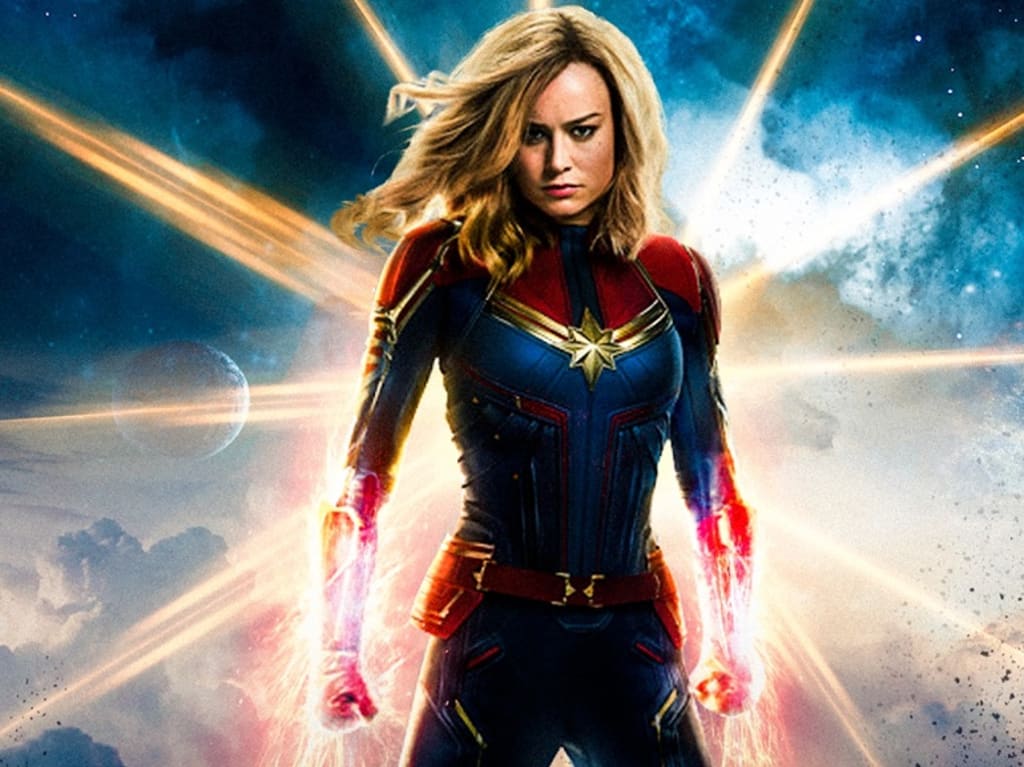
Captain Marvel was released in March in theaters around the world, and tells the story of one the most powerful MCU characters, with Brie Larson as the main character, Samuel L. Jackson as young Nick Fury, and Jude Law as Captain Marvel’s Kree mentor, among other central roles.
The movie introduces Captain Marvel’s origin story, revealing that she’s a human, who got her powers from blasting a technologically advanced engine core, and absorbing its power. She’s then kidnapped by a Kree crew who bring her to their planet, and she’s integrated in the Star Force, an elite corps in charge of eliminating threats, in this movie the Skrulls.
The movie is very enjoyable, and beautiful with great special effects. It also made interesting choices in terms of casting, filming, plot twists, and pacing. I went to see it with pretty low expectations, mostly because, by the time I got to the theaters, I heard numerous negative reviews stating that:
- The movie had no impact on the MCU, and lacked high stakes.
- The main character doesn’t show enough emotion.
- The main character is never actually threatened by villains or circumstances.
- The main character is too strong, and doesn’t demonstrate enough vulnerability.
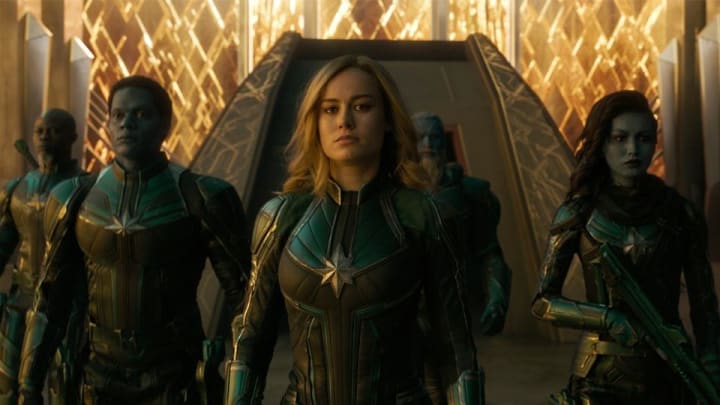
Keeping these critics in mind, I was pleasantly surprised by this movie, and felt like I watched a different movie than prompted all the haters’ comments I heard/read beforehand.
The plot is coherent and interesting, with the right dose of mystery around the main character’s true origins, and a plot twist I honestly didn’t see coming. The characters are well fleshed out from the beginning to the end of the movie, and they're all likable with definite personalities, whether it comes to Captain Marvel, her allies, or the apparent villains.
I liked the chemistry between Captain Marvel and Jude Law’s character Yon-Rogg, even after it’s revealed he doesn’t have her best interest at heart. During the first part of the movie, it looks like he’s trying to protect her from her powers, and from enemies, and we later realize he endeavours to secure her powers, and protect his people from her. The relation between Captain Marvel and Young Nick Fury (and even Coulson who makes really cool appearances in the movie) are very well handled, because the dynamics between the characters don’t take forever to take shape.
You could say the movie doesn’t beat around the bush by overcharging the story with useless details.
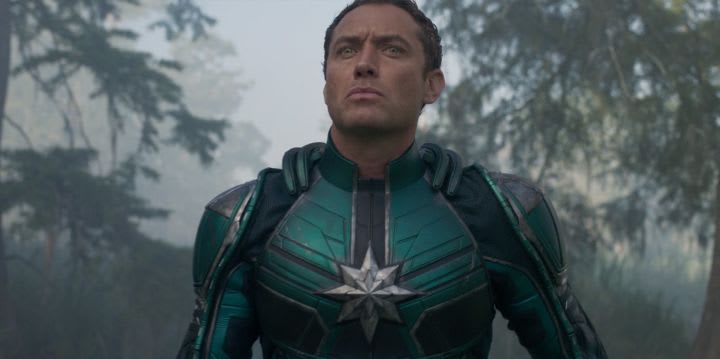
The main character, who thinks her name is "Vers" at the beginning of the movie, wakes up from a troubling dream, on the Kree planet called Hala. The mystery surrounding her origins is placed from the very first scene. Where do those dreams come from? Is it just a dream, or a premonition, or a memory? This first scene sets the tone for the rest of the movie, and will give an interesting guiding thread to Vers’ adventures, and quest for identity.
Some critics pointed out that we don’t see much of this city, and that they would have loved to learn more about it.
To that I would argue that the Kree civilization is not at the center of this story, Captain Marvel is! We see enough of the Kree civilization (people ruled by an AI, architecture, technologies, etc.) to follow Captain Marvel adventures, more details about it can wait until future movies.
About the haters/self-proclaimed anti-SJW people’s reviews on this movie:
I mainly disagree with the reviews saying that Brie Larson was emotionless during the whole movie. From the beginning of the movie, we can feel her agitation and uncertainty, because of the dreams she has about her past (without originally knowing those dreams are about the past). She is still optimistic, and keeps smiling, as she is seen training with her Kree mentor (Jude Law). She has a strong personality, she is brave, a little insolent at times. When she is on Earth, she seems completely lost, and actively tries to find answers. And when she sees a photo of her in the the top secret base, we see that she is bewildered. All the acting is in her eyes, and it’s more than enough. Later in the movie, she screams that she does not know who she is, she has tears in her eyes when she talks to her longtime friend, she shows anger when she discovers the truth. In a nutshell, she displays enough emotion for me.
The problem with movies with a female lead nowadays is that the male public will almost always (and I insist on the "almost always") tries to find loopholes in the way the personality of the lead is built.
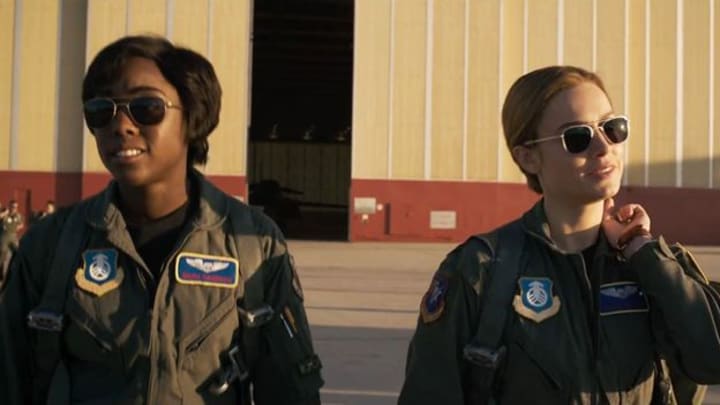
When the female main character is too emotional, they will claim that she screamed too much, or jumped everywhere, that she was "hysterical," or that she "shouted too much," and therefore that she was unable to control her emotions. And in the opposite case, when we are shown a strong woman who maintains a good control over the situations around her and her reactions, all of a sudden, she does not show enough emotions for male spectators who wants to find something to critique
In today’s movies, the main issue isn't that women are emotionless or too emotionally involved.
The problem is not there: they must be objectionable and criticized. The male public who feels threatened by a strong female lead must find something to blame, because she will never be perfect—or even likable, if she’s not perfect. It seems it’s just not possible to love a female character with her qualities and flaws… When it’s much more enjoyable, and reassuring for men with fragile egos to criticize her!
Male heroes also have flaws, but while these flaws counterbalance their qualities, they don’t make them bad heroes.
Captain America was considered too stiff and uptight, Thor too was lost and clueless in our world, and too perfect in his, and don’t even get me started on Iron Man who is a billionaire, playboy, philanthropist, genius inventor of a new source of energy and armor that turns him into one of the most powerful men on Earth, etc.
Even with these details (that we can appreciate or not), we can still enjoy the Captain America, Thor and Iron Man movies without belittling the heroes. I repeat, male heroes have the right to have flaws, while it seems it’s not tolerated in female heroes.
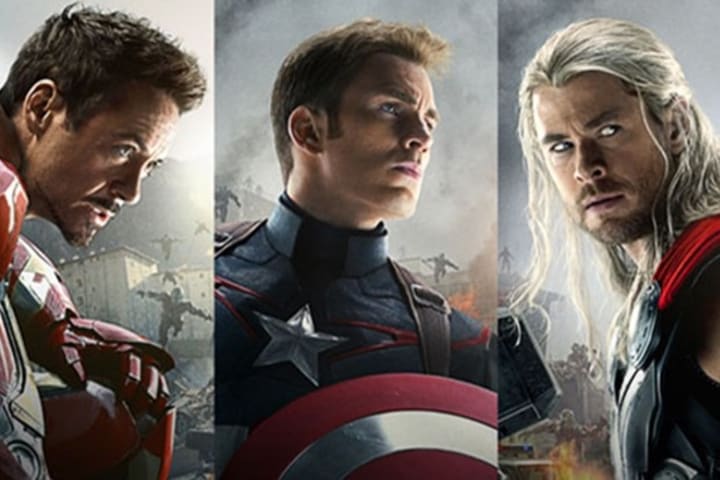
One of the main hater’s comments is the following: At the beginning of the movie, Yon-Rogg tells her that she has to control her emotions, and we do not often see her losing control of her emotions during the rest of the movie.
I believe most of the haters did not quite understand what was happening in this scene: Yon-Rogg tells Vers to control her emotions, as a means TO CONTROL HER, because he’s afraid of her powers. Historically, women have been told to control themselves, to be quiet, and were labeled as people unable to control their emotions. These manipulative comments were used to hold women down, to prevent them from rising up against the inequalities or mistreatment targeting them.
When a man is behaving inappropriately towards a woman in the workplace (for example), the woman who is offended, and who protests against this behavior will in most cases be told to calm down, and stop blowing things out of proportion. Basically, "learn to control yourself and shut up."
In conclusion, it’s NOT because a woman is told she has to control herself, that it necessarily means she has behavior problems. This approach may be intended to defuse the legitimate emotion (whether it’s anger, joy, sadness) felt by this person, to make her/him believe that she/he is not in a position to feel this emotion, and CONTROL THIS PERSON.
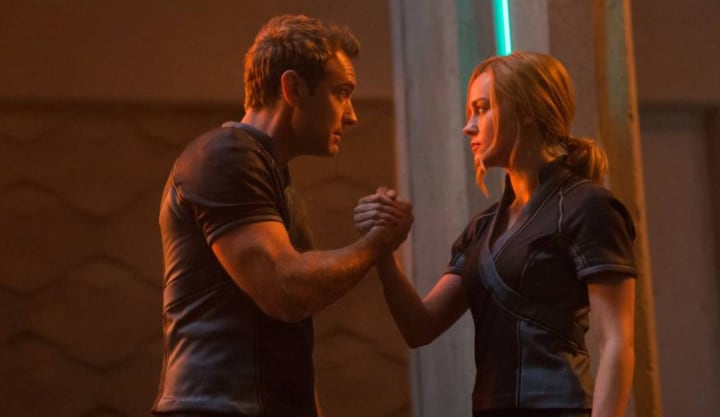
Captain Marvel says it very well at the end of the film: "I have nothing to prove to you."
She does not need to prove that she’s capable of controlling her emotions. Just because ONE GUY in the whole movie tells her that she can’t do it, doesn’t mean it must be true! It was manipulative from Yon-Rogg to try to convince her otherwise. The movie didn’t try to say that Captain Marvel can’t control herself, the movie says that’s what we try to make her believe, in order to control her!
On the comments saying that she is "too strong."
The character was written like that in the comics: Captain Marvel is a powerful character; it’s been like that from the beginning. The film did not invent anything on that side.
As I said before, Iron Man is a billionaire, playboy, philanthropist, genius inventor of a new source of energy and armor that turns him into one of the most powerful men on Earth, which allows him to fly as fast as a fighter plane, to attack his enemies with loads of energy, to blow buildings, etc. In conclusion, men can accept that a male hero can be/do all these things, BUT can’t accept a female hero who is "too strong" (Everything is relative, why "too strong." Is it based on the fact that she is a woman?).
"I did not feel close to this character, it was better with Wonder Woman."
I liked the movie Wonder Woman, although there were some flaws. Among the defects that bothered me most, the character is quite sexualized, with a relatively revealing costume, a phony love story inserted just so that Wonder Woman may have a love interest, an intimate scene (which is not shown… Which is indicative of the importance of this relationship), and a scene where we see her dressed in street clothes to cause a basic reaction from the viewers « Waouw, she’s smoking hot in this outfit. I’d love to hit that!
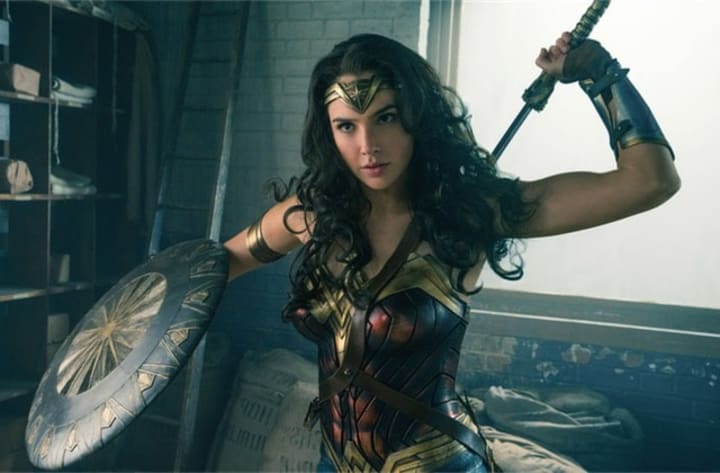
This is basically what made the male audience more sympathetic to Wonder Woman than Captain Marvel:
- The female character must be turned into a sexual object.
- We must be able to admire the voluptuous parts of her body from several favorable angles.
- She must show that she is superficial (with the scene where Wonder Woman is so happy to wear his new ultra expensive and trendy outfit).
- M male character must be inserted in the movie for her to fall in love with (because… a woman is not a woman if she does not have a man…).
- We need an intimate scene with this man so that the male public identifies with him (NOT to the main character, obviously!) and fulfill their fantasy of banging Wonder Woman.
And that’s how you will interest the male audience in a film with a female hero: turn her into a fantasy!
So today, we learnt that, if men with fragile egos see a woman they can’t imagine banging, because she is not sexualized enough in a movie, they will most likely feel threatened, and make simplistic comments like "she is too perfect," "she controls herself too much! We love half-naked women we can fantasize about, and criticize because they scream, cry, jump hysterically everywhere. Afterwards, we can say that women can not control themselves and that they always need a man to save them," "She is too strong."
They say "too strong," because a woman can be strong, but not too much! It is an established scientific fact!
About the Creator
Flora Silver
Hello everyone, I'm Flora. I am passionate about storytelling, science-fiction, fantasy, horror, space, mysteries, personal and professional growth. I will be sharing personal and fictional stories with you. I hope you will enjoy them!




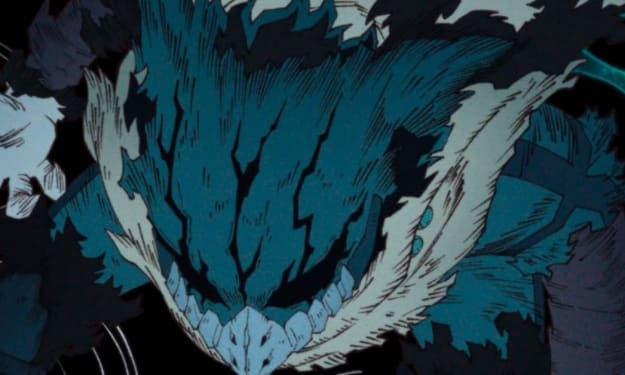

Comments
There are no comments for this story
Be the first to respond and start the conversation.